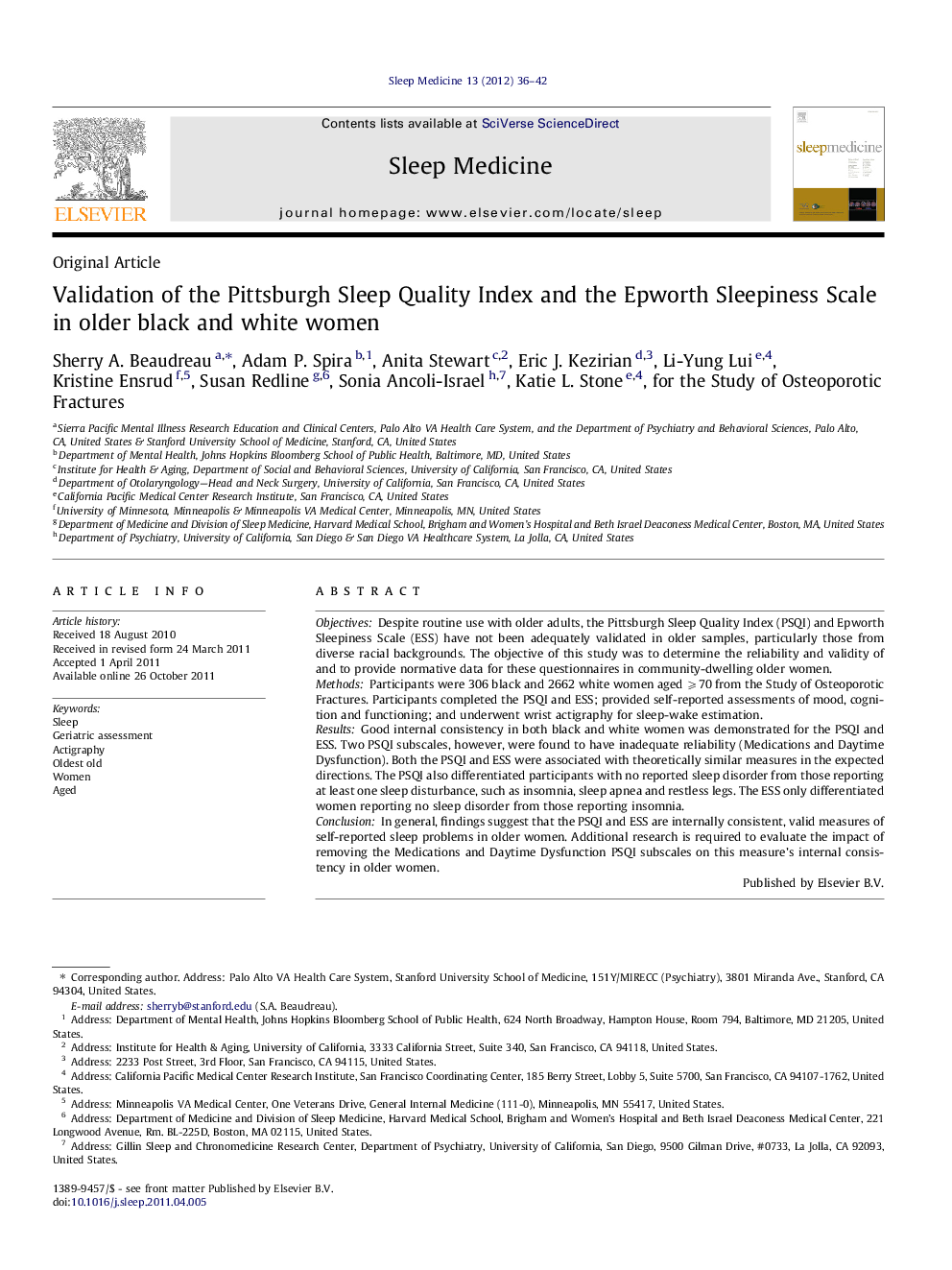| Article ID | Journal | Published Year | Pages | File Type |
|---|---|---|---|---|
| 3176727 | Sleep Medicine | 2012 | 7 Pages |
ObjectivesDespite routine use with older adults, the Pittsburgh Sleep Quality Index (PSQI) and Epworth Sleepiness Scale (ESS) have not been adequately validated in older samples, particularly those from diverse racial backgrounds. The objective of this study was to determine the reliability and validity of and to provide normative data for these questionnaires in community-dwelling older women.MethodsParticipants were 306 black and 2662 white women aged ⩾70 from the Study of Osteoporotic Fractures. Participants completed the PSQI and ESS; provided self-reported assessments of mood, cognition and functioning; and underwent wrist actigraphy for sleep-wake estimation.ResultsGood internal consistency in both black and white women was demonstrated for the PSQI and ESS. Two PSQI subscales, however, were found to have inadequate reliability (Medications and Daytime Dysfunction). Both the PSQI and ESS were associated with theoretically similar measures in the expected directions. The PSQI also differentiated participants with no reported sleep disorder from those reporting at least one sleep disturbance, such as insomnia, sleep apnea and restless legs. The ESS only differentiated women reporting no sleep disorder from those reporting insomnia.ConclusionIn general, findings suggest that the PSQI and ESS are internally consistent, valid measures of self-reported sleep problems in older women. Additional research is required to evaluate the impact of removing the Medications and Daytime Dysfunction PSQI subscales on this measure’s internal consistency in older women.
